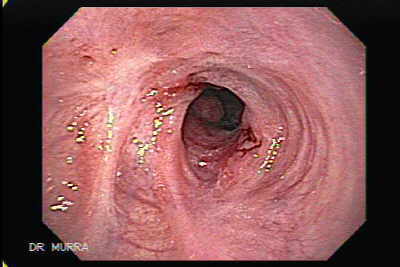
9 This has significant implications in the elderly population with PUD as they often have cardiovascular, pulmonary, metabolic, or renal comorbidities. 8 In a retrospective review of 9,375 Chinese patients with peptic ulcer bleeding in a tertiary center, 577 patients died, with a majority of them (79.7%) dying of non-bleeding related causes (eg, multiorgan failure, pulmonary conditions, and terminal malignancy). 7 In a population-based study including patients with peptic ulcer bleeding and perforation, diabetes was associated with increased short-term mortality. 6 Another study reported a higher annual incidence of perforation in PUD patients who were greater than 65 years old. 5 – 9 In a large population-based study of 7,232 patients with bleeding peptic ulcer, the standardized 30-day mortality among patients older than 80 years was 16.9% compared with 4.3% among patients younger than 65 years. Old age and the presence of comorbidities have been consistently shown to be risk factors for poor outcomes in patients with complicated PUD. This article aims to review the key issues in the management of PUD and GERD in elderly Chinese patients and the use of proton pump inhibitors (PPI) in acid-related disorders with a focus on esomeprazole.Īlthough the incidence of uncomplicated PUD has decreased in recent years in the general population, elderly patients remain at high risk for PUD and its complications such as bleeding or perforation. Although acid suppressive therapy has become the cornerstone in the management of PUD and GERD, the safety and tolerability of various acid suppressive agents deserve special attention in the geriatric population. 1, 2 There is also a higher tendency for older individuals to have multiple medical comorbidities (eg, cardiovascular disease, cerebral vascular disease, diabetes, chronic kidney disease, degenerative joint disease) requiring them to use medications (eg, aspirin, nonsteroidal anti-inflammatory drugs ) that increase the risk of upper gastrointestinal (GI) injury. Management of acid-related disorders in the elderly patient population represents a unique challenge as the epidemiology, clinical presentations, and outcomes may be different from their younger counterparts. Peptic ulcer disease (PUD) and gastroesophageal reflux disease (GERD) are both common acid-related disorders. Clinicians should balance the risks and benefits before committing elderly patients to long-term PPI therapy. Potential safety concerns of long-term PPI use have been reported in the literature.

Proton pump inhibitors (PPI) including esomeprazole are effective in the treatment of reflux esophagitis, maintenance of GERD symptomatic control, and management of PUD as well as its complications. Elderly patients with GERD often require long-term acid suppressive therapy. Effective management of PUD in the geriatric population relies on identification and modification of treatable risk factors. Recent data has shown that HP-negative, NSAID-negative idiopathic peptic ulcers are on the rise and carry a higher risk of recurrent ulcer bleeding and mortality.

Multiple risk factors (eg, Helicobacter pylori, use of nonsteroidal anti-inflammatory drugs, aspirin) contribute to the development of PUD. Older individuals are at increased risk for poor outcomes in complicated PUD and for development of GERD complications. Clinical presentations of these acid-related disorders may be atypical in the geriatric population. Peptic ulcer disease (PUD) and gastroesophageal reflux disease (GERD) are not uncommon in elderly patients.


 0 kommentar(er)
0 kommentar(er)
